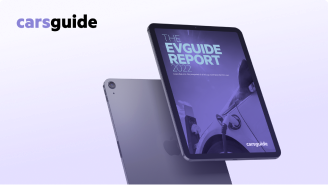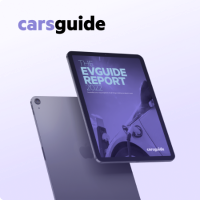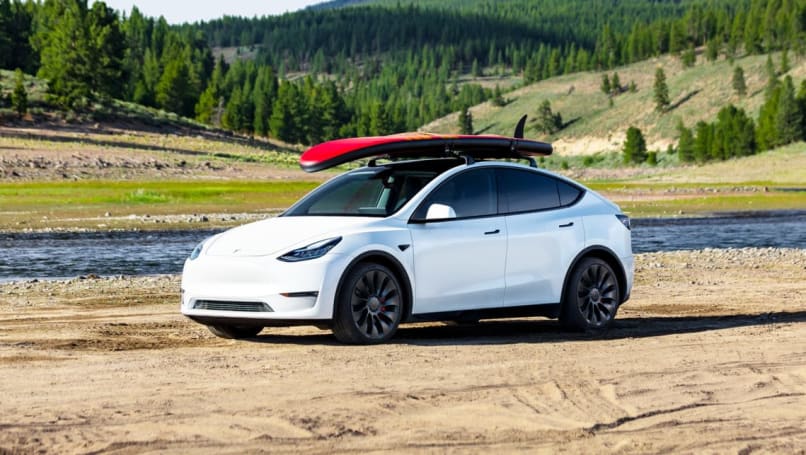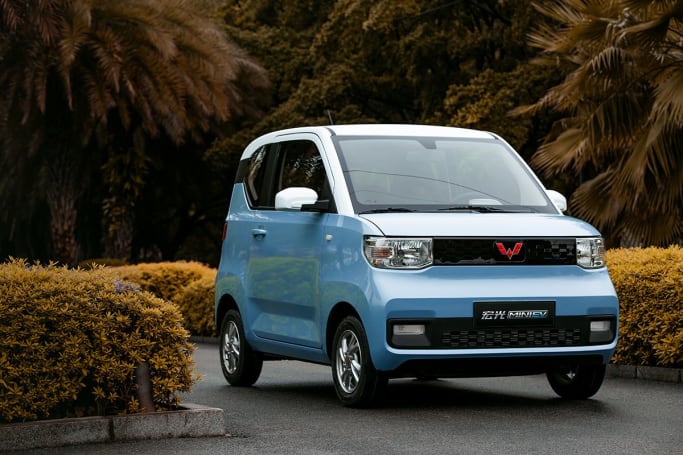
The top 9 electric vehicle manufacturers
- Electric Cars
- BMW
- Hyundai
- Kia
- Nissan
- Tesla
- Volkswagen
- BYD
- EV Advice
- BMW Advice
- Hyundai Advice
- Kia Advice
- Nissan Advice
- Tesla Advice
- Volkswagen Advice
- BYD Advice
- EV
- Electric
- Electric Cars
- Green Cars
- EVs

Dire distress about climate change and CO2 emissions seems to have been in the air for decades, yet the idea of banning the sale of fossil fuel-consuming still sounds radical to the point of being unimaginable.
And yet, today, no fewer than 51 countries around the world have announced plans to implement a ban on the sale of new gas guzzlers, with various dates for those rules kicking in (the earliest, just a few years away now, is 2025, which is when Norway will bid farewell to internal combustion, at least in new-car sales).
Taking the very strong hint that the future is electric, car manufacturers have also made some bold proclamations, with a swathe of them pledging to either go fully electric or predominantly electric in the near future.
Read more about electric cars
Some forecasts predict annual global EV sales could reach 40 million by 2030 - a significant jump from the 4.2 million global EV passenger car sales in 2021.
As of 2022, there are 14 brands of electric cars in Australia and 30 models on offer including 65 variants (28 plug-in hybrid electric variants and 37 battery electric vehicle variants); in the near future we’ll see an additional 31 battery electric vehicle variants, and six PHEVs from a range of 28 models.
Whichever way you slice it with an electric knife, it’s clear that electric car companies are only going to go from strength to strength, while ICE vehicles go the way of the dinosaurs. Or the horse and cart (and, just as rich people still ride horses, you can bet old cars will hang around, too).


Download the EVGuide Report, 2022
Australia's one-stop snapshot of all things relating to electric cars.
Starting with perhaps the most influential electric car maker on the planet - no prizes for guessing - here’s a list of car companies with big plans for EVs (note: most car companies will have plug-in hybrid electric vehicles too, but we’ll be focusing on the companies that already have a range of all-electric vehicles on offer).
Companies are ranked in terms of market cap, net worth, stock value, and units sold by the end of 2021.
1. Tesla

Although the word ‘cool’ isn’t the first thing you think of when clapping eyes upon Elon Musk, the fact remains that the Tesla CEO is pretty much singlehandedly responsible for making EVs trendy and popular - a feat that has taken his personal worth beyond $US200 billion, while Tesla itself is worth a mind-boggling $US725 billion.
Tesla’s current stable includes the world’s highest-selling EV, the Model 3, along with the Model S, X and Y (yes, Musk has actually made it so the line-up spells out “S3XY”).
In the works are a second-generation Tesla Roadster sports car, as well as the Tesla Semi, Tesla Cybertruck and Tesla Cyberquad, all reportedly due in 2023 (it’s worth noting that not all Teslas actually arrive to market as predicted).
Tesla sold 936,172 global units in 2021 and 310,411 units in the first quarter of 2022.
2. BYD

Chinese car manufacturer BYD (“Build Your Dreams”, acronym fans) has snuck up behind Tesla to become the second-biggest EV manufacturer in the world, having sold a huge 593,743 units in 2021 (2022 Q1 is off to a reasonably good start with 144,203 units sold).
It’s making in-roads into the Australian marketplace too, claiming that it’s already taken more than 3000 orders for the Atto 3 electric SUV, which is priced at $44,990, making it the equal cheapest EV in Australia, matching the MG ZS EV.
A small EV hatch and mid-sized EV sedan are also due to arrive in Australia by the end of 2022, so expect BYD to become more of a household name before too long.
3. Volkswagen Group

The automotive conglomerate responsible for Audi, Bentley, Bugatti, Lamborghini, Porsche, SEAT, Škoda and, of course, Volkswagen sold 452,900 units globally in 2021 and has revealed big EV plans for the future: it aims to have 50 per cent of the cars it produces be EVs by 2030, with that number closer to 100 per cent by 2040 as it moves towards an ultimate goal of being completely carbon neutral by 2050.
The Volkswagen range of EVs is on track to overtake Tesla in terms of sales by 2024, with the ID range beginning to arrive in Australia in 2023, when the ID.4 and ID.5 mid-size electric SUVs finally go on sale.
Other EV models from the VW Group available in Australia include the Audi e-tron and Porsche Taycan.
4. SAIC-GM-Wuling Motors

This joint venture between China’s SAIC Motor and Liuzhou Wuling Motors Co and American automotive giants General Motors sold 400,000 units in 2021, a large portion of that number being China’s most popular electric vehicle, the Hong Guang MINI EV.
The reason for its popularity? A bargain-basement $A7200, which buys you a 9.2kWh battery that supplies 120km of driving range, although a 26.5 kWh model with 280km of estimated range is due by the end of 2022.
5. BMW

BMW - which also has the Rolls-Royce and Mini brands on its roster - has said that half of its sedans, SUVs and Minis will be electric by 2030, with the aim to cut its emission footprint by a third at that point as well.
The company shifted 328,316 EVs globally in 2021 and already has a number of all-electric cars on the Australian market, including the BMW iX3 subcompact car, the iX series of electric luxury SUVs, the i4 Gran Coupe and Mini Electric hatch. The all-electric i7 will be joining them in the fourth quarter of 2022.
6. Nissan

Selling 184,033 EVs globally in 2021, the makers of the popular Leaf EV - (at one time, pre Tesla’s dominance, it was the biggest selling EV in the world) has pledged to have 50 per cent of the cars it produces electrified by 2030, with plans to have another 15 all-electric models available by then.
Its newest EV, the Ariya SUV, is likely to arrive Down Under in 2023.
7. Hyundai Motor Group

The South Korean motoring juggernaut consisting of the Hyundai, Kia and Genesis brands sold 160,000 EVs around the world by the end of 2021.
Hyundai already has its own EV sub-brand, Ioniq, with hopes to have 23 EV models across all brands by 2025.
In Australia, Hyundai currently has the Kona Electric, Ioniq Electric (although it has been discontinued as of 2022), Ioniq 5, while its sister company has the Kia Niro EV and EV6. By the end of 2022 the Genesis G80, GV70 and GV60 will also be available, while 2023 sees the arrival of the Ioniq 6 “electrified streamliner” (a fancy way of saying “electric sedan”).
Don’t expect things to stop there: Hyundai Motor Group has pledged a $US16.2 billion investment in electrification between now and 2030, when the company hopes for global EV sales of 1.87 million units.
8. Nio

Considered the Chinese version of Tesla, Nio sold 25,000 EVs globally in 2021.
Nio pumps out a wide range of EVs, including the ES7 SUV, a direct competitor of the Tesla Model Y, as well as developing autonomous-driving and battery-swapping technologies.
Although Nio has no models available in Australia yet, the company has dropped hints it will enter the marketplace here by 2025.
9. Xpeng

With a net worth of $US16.28 billion as of May 2022, the Chinese start-up is battling it out with BYD and Nio for EV supremacy in China after shifting 16,000 EVs in 2021.
Xpeng’s range of EVs include the P7, P5, G3i, and G9, with the company yet to announce any plans to bring its models to Australia.










Comments